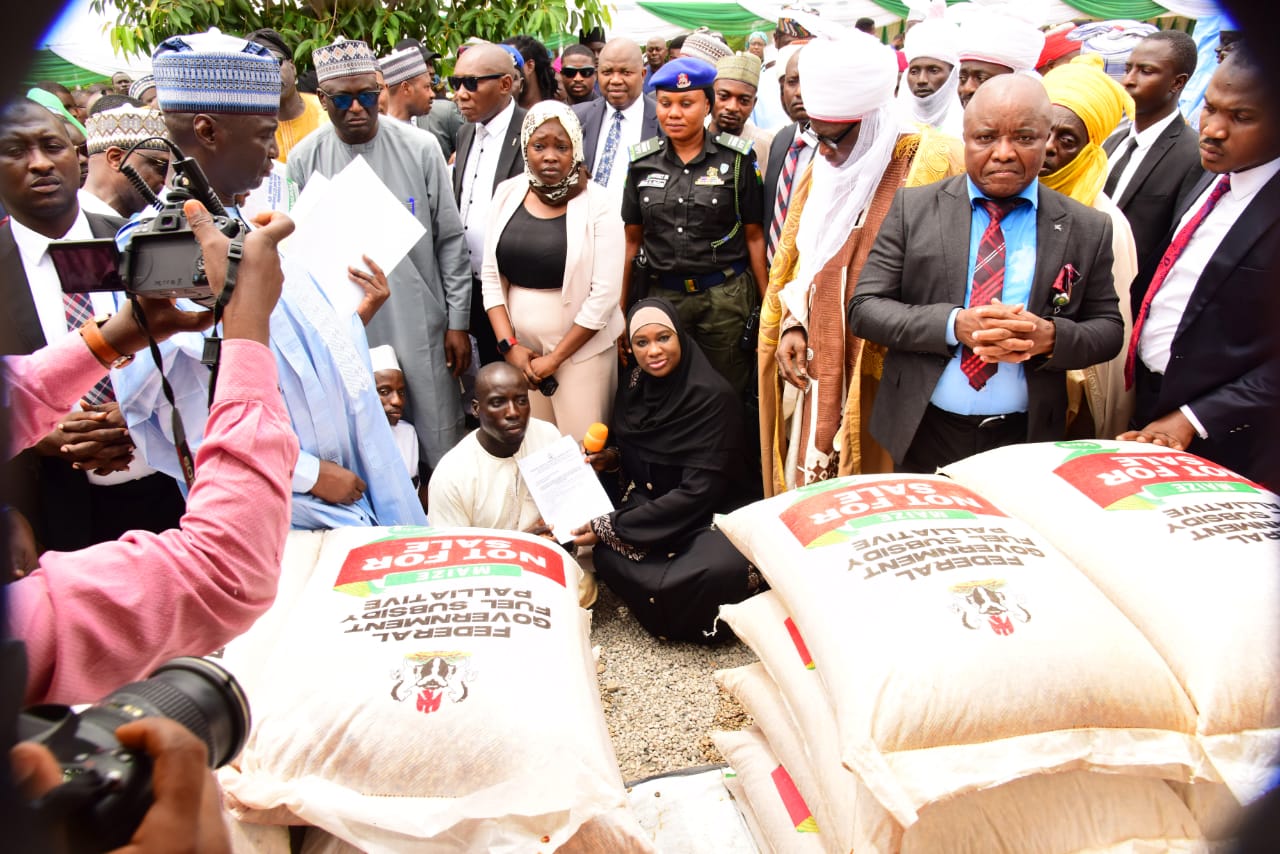OPINION
Urging FG To Create A Welfare System That Truly Serves All Citizens

BY ISAAC ASABOR
Since May 29, 2023, workers in both the public and private sectors have been experiencing economic hardship, particularly due to rising food prices. Despite the difficulties, the government’s support for public sector employees has raised concerns about equity and inclusivity.
In fact, the Nigerian government’s dedication to assisting public sector employees is admirable. However, this raises the question of whether non-government workers are also Nigerians. While civil servants receive regular pay and benefits, many private-sector employees, artisans, and informal labourers struggle to make ends meet. Is this disparity fair?
Against this backdrop, it is appropriate to confess that the inspiration to express this viewpoint came while reading the full text of President Bola Ahmed Tinubu’s speech on #EndBadGovernance Protests. Without a hint of hyperbole, I was startled when I reached paragraph 26 of the speech, where the president stated, “I signed the National Minimum Wage into law last week, and the lowest-earning workers will now earn at least N70,000 per month.” At that point, I subconsciously asked myself, “Does Mr. President believe that all private-sector employers will implement the minimum wage for him to say in his speech, ‘The lowest-earning workers will now earn at least N70,000 per month?” The reason for asking the above question is not farfetched, as many private organisations in both the service and manufacturing sectors lack the financial resources to pay the newly approved minimum wage. For example, in the sector where this writer works, the majority of workers’ basic salaries and allowances combined fall below the N70,000.00 minimum wage benchmark. Furthermore, a large number of employers in the sector owe their employees back pay, and they cannot be blamed because the business environment in which they thrive has remained hostile for decades.
Without a doubt, the foregoing stark reality is why this writer is concerned that the President’s signing of the minimum wage, which he appears to have flaunted in his speech, leaves much to be desired, especially given that a large portion of Nigeria’s working population is in the private sector.
In a country as diverse and dynamic as Nigeria, ensuring equity and inclusivity in welfare policies is more than just a social justice issue; it is a fundamental requirement for long-term development. As the federal government faces the challenges posed by economic downturns, it must prioritise fairness and transparency in order to close the gap between the working population and government employees.
While equality seeks equal resources for all, equity acknowledges that individuals face unique challenges. It recognises disparities and provides support accordingly. In the context of welfare, equity entails meeting the unique needs of various groups while ensuring that no one falls behind.
In a similar vein, inclusion refers to deliberate efforts to enable diverse people with various identities to fully participate in all aspects of an organisation. In our case, it entails involving both government employees and the general working population in policymaking and resource allocation.
When it comes to salary adjustments, government employees are frequently given first priority. While this is necessary for their well-being, it should not overshadow the struggles of the working class. A fair approach would include regular reviews of the minimum wage and benefits for all, regardless of sector.
Furthermore, the recent sale of a bag of rice at a relatively low cost to government employees raises concerns. In times of hunger, as all Nigerians are experiencing, equitable distribution of relief materials is critical. The working class, too, deserves access to affordable necessities.
Unfortunately, the federal government has concluded plans to sell a 50kg bag of rice to public servants for N40,000 in order to alleviate the country’s food crisis and its effects on Nigerian citizens.
This was revealed in a letter from the Federal Ministry of Special Duties and Intergovernmental Affairs, signed by the Ministry’s Director of Human Resources, Jaiyesimi Abimbola.
The letter stated that all interested staff members should fill out a Google form on the OHCSF website and submit it to the director of human resources for approval, and that payment and distribution of the rice would be coordinated by designated offices, with the chairman of the ministry’s Joint Union Council serving as an observer for transparency purposes during the exercise. The question at this point is, “Why are workers in the private and informal sectors of the economy not included in the distribution of rice that is half the price of rice in consumer markets?”
Given that workers in the private and informal sectors of the economy are clearly excluded from the apparent generosity, it is prudent for the government to implement a Needs-Based Approach. In fact, it is expedient for the government to tailor welfare policies to the specific needs of various groups. For example, for the working population, there is a need to prioritise job creation, affordable healthcare, and education. In a similar vein, the government should address the unique challenges that government workers face while ensuring fairness.
Similarly, there is a need to include civil society organisations, labour unions, and grassroots representatives in policy discussions because their perspectives can lead to better solutions.
To be clear, equity and inclusivity are more than just buzzwords; they form the foundation of a prosperous Nigeria. By prioritising fairness, transparency, and collaboration, the federal government can bridge the gap and build a welfare system that truly serves all of its citizens.
-
CRIME3 years ago
PSC Dismisses DCP Abba Kyari, To Be Prosecuted Over Alleged $1.1m Fraud
-
FEATURED3 years ago
2022 Will Brighten Possibility Of Osinbajo Presidency, Says TPP
-
FEATURED2 years ago
Buhari’s Ministers, CEOs Should Be Held Accountable Along With Emefiele, Says Timi Frank
-
BUSINESS & ECONOMY2 years ago
Oyedemi Reigns As 2023’s Real Estate Humanitarian Of The Year
-
SPORTS1 year ago
BREAKING: Jürgen Klopp Quits Liverpool As Manager At End Of Season
-
SPORTS2 years ago
Could Liverpool Afford Kylian Mbappe For €200 million? Wages, Transfer Fee
-
ENTERTAINMENT2 years ago
Veteran Nigerian Musician, Basil Akalonu Dies At 72
-
FEATURED2 years ago
Tribunal Judgement: Peter Obi Warns Of Vanishing Electoral Jurisprudence, Heads To Supreme Court
-
BUSINESS & ECONOMY2 years ago
Oyedemi Bags ‘Next Bulls Award’ As BusinessDay Celebrates Top 25 CEOs/ Business Leaders
-
FEATURED3 years ago
2023 Presidency: South East PDP Aspirants Unite, Demand Party Ticket For Zone





























